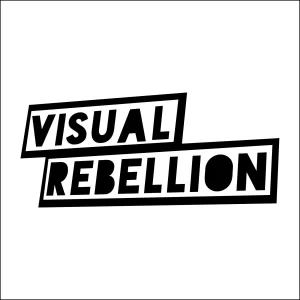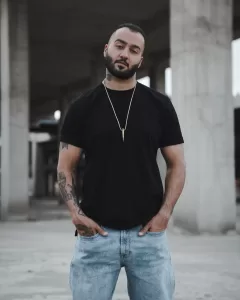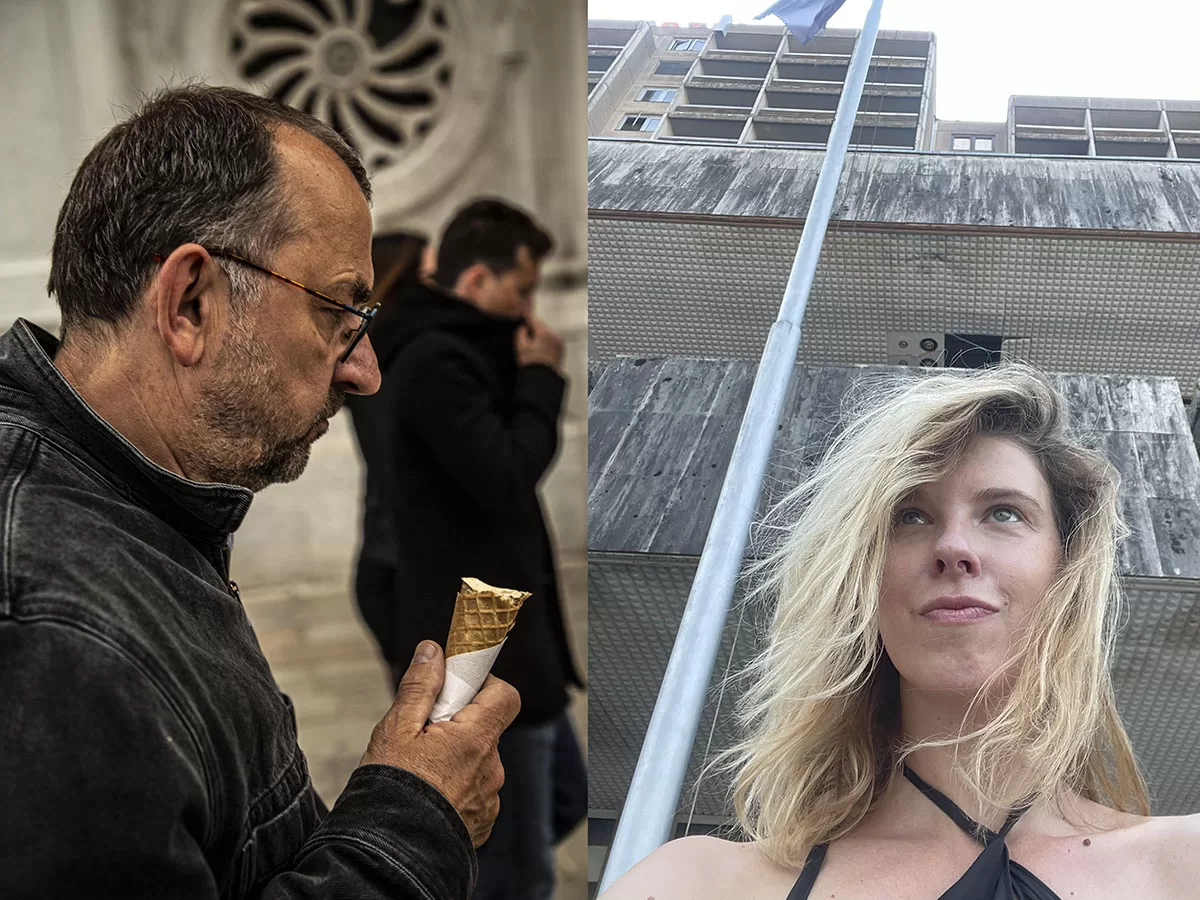Index relies entirely on the support of donors and readers to do its work.
Help us keep amplifying censored voices today.
Yes! Yes Sir! Life is normal
A labourer’s annual wage is worth a dinner abroad
Yes! Of course, Sir! Life is normal
We don’t dare say otherwise, in case we get in trouble
These are the opening lines of Toomaj Salehi’s song Normal. Salehi did dare to say otherwise though and for that he did get in trouble. On Wednesday an Iranian revolutionary court sentenced him to death. The charge was “corruption on earth”. The only thing corrupt is Iran’s regime.
For those unfamiliar with Salehi, he is a well-known Iranian hip-hop artist whose lyrics are infused with references to the human rights situation in Iran. He was an outspoken supporter of the Woman, Life, Freedom movement. Last year, Index awarded Salehi a Freedom of Expression award in the Arts category. Salehi donated his cash prize to victims of recent floods in Iran.
Because of his advocacy Salehi has faced continuous judicial harassment, including arrest and imprisonment. He has been in and out of prison since 2021. A moment of respite came in November 2023 when Iran’s Supreme Court struck down Salehi’s six-year prison sentence. The respite was short-lived. Just days after he was released from prison Salehi was rearrested upon uploading a video to YouTube documenting his treatment while in detention.
On 18 April 2024, Branch 1 of Isfahan’s Revolutionary Court held a new trial for Salehi where the court ultimately convicted Salehi and sentenced him to death. His lawyer alleged that the ruling had significant legal errors, including contradicting the Supreme Court verdict. He said that they will appeal the verdict. They only have 20 days.
Index has been in close contact with his family, as well as lawyers and other organisations who work in our field. We are shocked by the barbarity of this decision (please read our CEO Ruth Anderson’s article on what he means to us more personally here), as well as heartened by how the international community has pulled together. If you are on social media and have not yet engaged with his case, we have a small favour to ask – do please post about Salehi and use the hashtag #FreeToomaj. Making noise might not change the outcome of the case but we know that solidarity can have a huge impact on the emotional wellbeing of dissidents and their families.
Salehi’s case is top of the Index priority list. Still, we have been keeping a close eye on the USA, where academic freedom, free assembly and broader First Amendment rights are being put to the test. While we have seen instances of hate speech directed towards Jewish students – vile and unjustifiable – the overall picture being painted is one of police overreach and brutality. There are too many disturbing scenes by now but let me highlight one – a CNN video of Professor Caroline Fohlin from Emory University in Atlanta being hurled to the ground and handcuffed. She had simply asked the police “What are you doing?” after she came across the violent arrest of a protester on campus.
There are immediate concerns for free speech here. Beyond these are two longer term ones. Firstly that this is part of a broader pattern of less tolerance towards protest across the world. We’ve seen it in the UK in the form of legislation restricting where and how people can protest, which has also led to an overzealous police force who arrest campaigners before their protests even start. Secondly that this will provide perfect justification for Trump, should he be re-elected, to further crack down on rights. “Look”, he’ll say, “Biden’s administration did it too”.
We’ve read a lot of good, thoughtful articles this week about the protests, such as this from Slate talking to Columbia students about the situation on the ground, this from Robert Reich on the free speech implications (he argues universities should actively encourage debate and disagreement) and this from Sam Kahn on what it feels like to be Jewish in the USA right now (he takes issue with what he terms a “nothing-to-see-here je ne sais quoi” approach to the protests). We also had an NYU professor, Susie Linfield, commenting late last year here. Do take a read. It feels slightly like wading through treacle right now – it’s easy to get stuck on one argument and then stuck on a totally different one. So we should take a step back and that step back for me came from the Gazan-American Ahmed Fouad Alkhatib when he commented on what was happening at the University of Texas Austin:
“Regardless of what you think of pro-Palestine protesters, attacking students (and a cameraman) during a peaceful assembly is shameful and wrong. This will inspire even more protests and further inflame a really difficult and an impossible situation. Absent acts of violence, harassment, or destruction of property, students have a right to freedom of expression. We cannot lose sight of that.”
Whether in the USA or Iran we stand by peaceful protesters and we will always call out those who seek to silence them.
 Visual Rebellion (Myanmar)
Visual Rebellion (Myanmar)Launched on International Human Rights day on 1 December 2021 by a team led by Nadja Houben (Human Rights in the Picture foundation) and Laure Siegel (Mediapart), Visual Rebellion is a platform to showcase and support the edited work of journalists, filmmakers and artists across post-coup Myanmar. The activities of Visual Rebellion consist mainly of a free public information service on what is happening in Myanmar and in Thailand, continuing education for their members in English, Thai and Burmese language on a range of topics including cybersecurity, investigations, photojournalism, as well as coordinating the production of photo exhibitions, documentary screenings and book publications to finance their studies or visas.
 Toomaj Salehi (Iran)
Toomaj Salehi (Iran)Salehi is a well-known Iranian hip-hop artist who has released protest songs including Mousehole, Turkmenchay and Pomegranate. Many of his songs explicitly reference the human rights situation in Iran, as well as threats to civil society. This has led him to being targeted by the authorities, long before his recent detention.
Following the release of Mousehole, Toomaj was arrested in the middle of the night on 12 September 2021. He was charged with "spreading propaganda against the state," but after more than a week he was released on bail. In January 2022, he was sentenced to six months in prison but was released on a suspended sentence in February. He later appeared in front of the prison where he had been imprisoned as part of a music video for a song written in memory of the victims of Aban.
Due to Toomaj’s support of the the protests that erupted after the killing of Mahsa Amini while in custody, he was violently taken into custody on 30 October 2022. In November, Iran's judiciary charged Salehi with a number of crimes, including spreading "corruption on Earth," a charge that could see him sentenced to death, as well as charges that each carry 1-10 years of imprisonment: “propaganda against the state,” “formation and management of illegal groups with the aim of undermining national security,” “collaboration with hostile governments,” and “spreading lies and inciting violence through cyberspace and encouraging individuals to commit violent acts.” While in detention, state media published a video purporting to show Salehi blindfolded, with bruising on his face, apologising for his words. Family members and human rights organisations have accused the authorities of torturing Salehi in prison to force him to make a false confession.
In July 2023, Toomaj was sentenced to over 6 years in prison for “corruption on earth”, as well as being banned from leaving Iran for 2 years. He is also banned from preparing, singing and producing music for 2 years. It has also been reported that he has been acquitted of two other charges - “insulting the supreme leader” & “communicating with hostile governments”.

Maria Lanko (right) was a co-curator of Kyiv-based gallery, The Naked Room, who was selected to co-curate the Ukrainian national pavilion at the 2022 Venice Biennale. The piece selected to represent Ukraine was entitled ”Fountain of Exhaustion” by artist Pavlo Makov (left), which is a kinetic sculpture consisting of 78 bronze funnels, arranged in the form of a pyramid. The water poured into the top funnel divides into two streams, feeding the funnels below. “Only a few drops reach the bottom, symbolizing exhaustion on a personal and global level,” the curators said in a press release.
On the evening of 24 February 2022, the day that Russia invaded Ukraine, Lanko packed the installation into her car and she drove, heading for Venice. The journey took three weeks, after taking a week just to make it to the border between Ukraine and Romania. Due to Maria’s decision, the piece was able to be presented at the Biennale to enable Ukrainian art to be seen in this unique and important showcase of international art. The importance of this was highlighted by Lanko in an interview with Deutsche Welle: “When the sheer right to existence for our culture is being challenged by Russia, it is crucial to demonstrate our achievements to the world".
London drill rapper Rico Racks has been jailed for three years for drug offences and banned from using certain words in his rap songs.
This is not the first time rappers have been told by the courts to exclude certain words from their music, and this type of legislation has been criticised by Index CEO Jodie Ginsberg.
Read the full story here
https://www.theguardian.com/music/2019/oct/21/drill-rapper-rico-racks-jailed-and-banned-from-rapping-certain-words
The right to freedom of expression is considered by many to be a cornerstone of a modern democratic society. Countries that fail to adequately protect this hallowed right – routinely censoring journalists, writers and musicians whose speech challenges and offends those in power – are rightly regarded by the West to be the worst examples of dictatorial, autocratic regimes.
But right here in the UK, artists are fighting the censorship of their work by global corporations bowing to pressure from and, arguably, colluding with the state and its organs. In May of this year YouTube, the video streaming platform owned by Google, succumbed to pressure from the Metropolitan Police and took down 30 music videos made by drill artists. The Met had been trying to persuade YouTube for almost two years to take down between 50 and 60 videos, alleging the material was contributing to the increase in violent crime on London streets.
This attack on the freedom of expression of musicians who make drill music does not stop at the removal of their videos from YouTube. Defendants convicted in criminal cases may in the future be banned from making music for a period up to three years if the offender is under 18 and indefinitely for adult offenders under criminal behaviour orders[1]. Crucially, the prosecution can use evidence to support the making of an order that would not have met the strict rules of admissibility as in a criminal trial[2]. The threat to freedom of expression goes further. The Met have expressed publicly their intention to push for new legislation, similar to anti-terrorism laws, that will criminalise the making of drill videos.
Drill is not for everyone. The lyrics are violent. There is liberal use of expletives. Descriptions of acts of violence using knives and guns are common themes. The images portrayed in the accompanying videos are similarly hard-hitting. Large groups of mainly young, mainly black men can be seen inhabiting the screen wearing hoodies and tracksuit bottoms - the uniform of the young in some sections of society.
Drill DJs are not, however, pioneers of explicit lyrics and violent images in music. The genesis of what is known as drill in the UK today sprang from a trap-style rap that originated in Chicago in the early 2010s. The hip hop of the 1980s and the gangsta rap of the 1990s are all part of the same family tree of poetic verse poured over a thumping beat. Drill is a close relative.
Nor is it new to blame this type of music for inciting violence. In the 1990s C. Delores Tucker campaigned against violent lyrics aimed at women in rap music. Then, as now, there was little direct evidence of a causal link between rap music and particular acts of violence. What the critics of this music fail to grasp is that the lyrics of this genre of music are inspired by, and not the cause of, the violence that infects the lives of many of these young men.
Looked at in its true context then, drill is less about inspiring violence and more about providing a narrative of lives defined by violence. They are telling the stories of their lives, minus the sugar-coating, just as other writers, poets and musicians have done before them.
The courtroom has often been the battleground of the clash between the values of the young minority against those of the old majority. In 1960 Penguin Books was prosecuted under the Obscenity Act 1959[3] for the publication of a book entitled Lady Chatterley’s Lover. The prosecution’s case was that the book had a tendency “to deprave and corrupt” those who read it in daring to portray the affair of a married woman with the family’s gamekeeper. Penguin Books was acquitted[4].
In 1971, the publishers of a satirical magazine were prosecuted when an issue of the magazine featured a sexualised cartoon of the children’s literary character Rupert the Bear. Known as the Oz trial, the three defendants were convicted by the Crown Court but were then acquitted on appeal[5].
Today, UK common law has arguably been strengthened by the enactment of the Human Rights Act 2000 by enshrining in law article 10 of the European Convention of Human Rights[6]. One former Court of Appeal judge said this of the importance of freedom of expression: “Free speech includes not only the inoffensive but the irritating, the contentious, the eccentric, the heretical, the unwelcome and the provocative provided it does not tend to provoke violence. Freedom only to speak inoffensively is not worth having.”[7]
You or I may not wish to stream drill music videos on our mobile device. Many people may find the content offensive. The videos may even be performed by individuals who are suspected of a crime or have criminal convictions[8]. None of this should confer on the state, aided and abetted by global corporations, a wide-ranging power that ultimately infringes the right of musicians to express themselves freely.
This censorship of a form of music which affords an already marginalised minority a rare opportunity to express themselves publicly is an attack against their fundamental rights as human beings.
We all need to sit up and take notice.
1. Under Part 2 of the Anti-social Behaviour, Crime and Policing Act 2014. Such an order may contain requirements for the defendant to inform the police of any activity that may be in breach of the order. The order may be varied, reviewed or discharged. Breach of the order is in itself a criminal offence.
2. An CBO was made recently against 1011 members Micah Bedeau, Jordean Bedeau, Yonas Girma, Isaac Marshall and Rhys Herbert. They are required under the CBO to inform the police 24 hours in advance of their intention to publish any videos online and are required to give a 48 hours warning of the date and locations any live performance.
3. The 1959 Act is still on the statute books.
4. R v Penguin Books Ltd. [1961] Crim LR 176.
5. R v Neville, Dennis & Anderson, The Times, 24 June 1971.
6. Article 10 (1) ECHR states: “Everyone has the right to freedom of expression. This right shall include freedom to hold opinions and to receive and impart information and ideas without interference by public authority and regardless of frontiers. This article shall not prevent states from requiring the licensing of broadcasting, television or cinema enterprises.” Article 10 (2) sets out limitations to this right.
7. Sir Stephen Sedley in Redmond-Bate v Director of Public Prosecutions [1999] Crim LR 998.
8. A number of successful high-profile rap artists have criminal convictions.